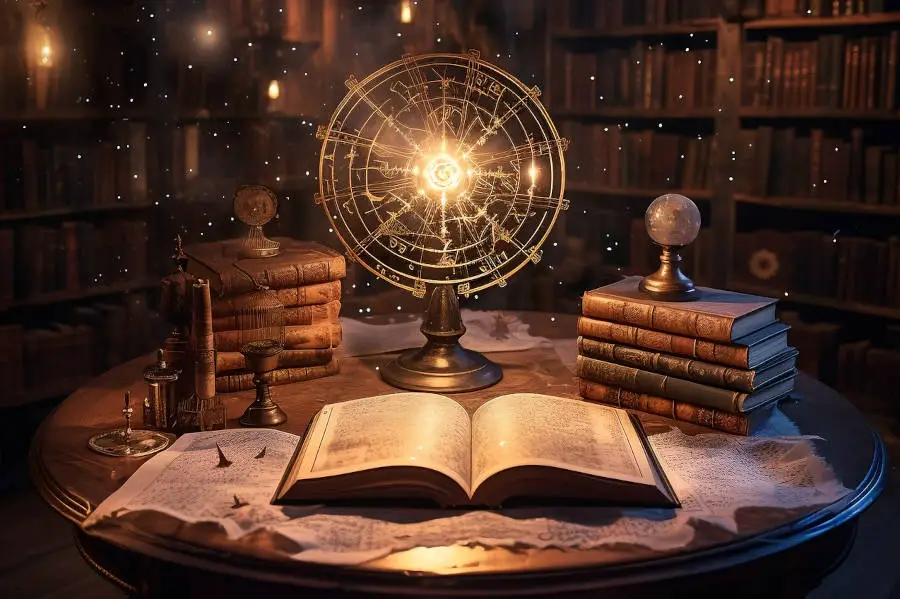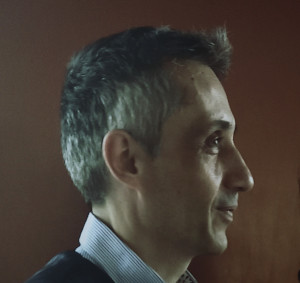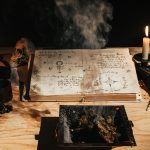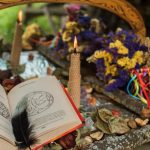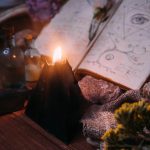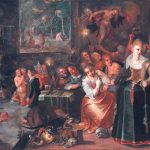Occultism has long been misunderstood. Often dismissed as a relic of the past or associated with secretive rituals, it is far more than just mysticism and magic. In reality, occultism has played a significant role in shaping modern culture, politics, and intellectual thought. From the rise of esoteric organizations to their influence on progressive social movements, its impact reaches further than many realize.
For centuries, occultism has been portrayed as an irrational, fringe belief system, often associated with superstition and secrecy. However, its true nature is far more complex. It has acted as a space for philosophical inquiry, scientific curiosity, and even social reform. Many occult movements have engaged deeply with questions about knowledge, power, and spirituality, often challenging mainstream religious and political ideologies.
A Cultural Force That Shaped Modern Thought
Occultism has left a lasting imprint on literature, art, and even politics. Thinkers like William Butler Yeats, deeply involved in esoteric traditions, infused their works with mystical themes that influenced generations of writers. Meanwhile, secret societies like the Theosophical Society and the Hermetic Order of the Golden Dawn provided alternative intellectual spaces where ideas about gender equality, spiritual evolution, and psychology were explored.
Far from being an outdated belief system, occultism has continuously adapted to modernity. The rise of psychology, the study of consciousness, and even quantum physics have found surprising parallels with esoteric ideas. In fact, many modern spiritual movements, including the New Age movement, have roots in 19th- and 20th-century occult traditions. These evolving interpretations show that occultism is not just a historical curiosity but an ongoing intellectual and cultural phenomenon.
Occultism and Politics: A Complex Relationship
Occultism has often been linked to political extremism, particularly right-wing ideologies. This perception, reinforced by influential thinkers like Theodor Adorno and George Orwell, paints esoteric traditions as inherently anti-democratic and elitist.
However, the historical reality is far more nuanced. While some esoteric thinkers did align with authoritarian movements, others embraced progressive ideals, using occult traditions to challenge societal norms and promote intellectual freedom.
Theodor Adorno and George Orwell’s Critiques of Occultism
In the aftermath of World War II, intellectuals sought to understand the forces that had contributed to the rise of totalitarian regimes. Theodor Adorno famously critiqued occultism in his Theses Against Occultism, arguing that it promoted irrationalism, authoritarianism, and a rejection of Enlightenment values.
According to Adorno, occultism’s emphasis on secret knowledge and hierarchical initiation mirrored the structure of fascist ideologies, making it a breeding ground for reactionary politics.
George Orwell, writing in the 1940s, took a similar stance, particularly in his analysis of the poet W.B. Yeats. Orwell noted Yeats’ deep fascination with the occult and his sympathy for emerging fascist movements in the early 20th century.
He argued that the esoteric worldview, with its cyclical theories of time and emphasis on elite wisdom, naturally lent itself to anti-democratic tendencies. Both Adorno and Orwell helped solidify the idea that occultism was intrinsically linked to reactionary politics.
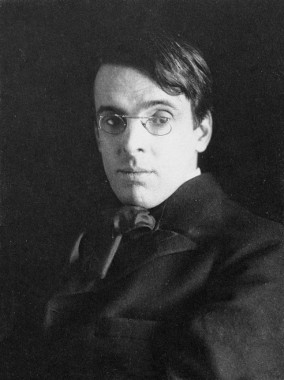

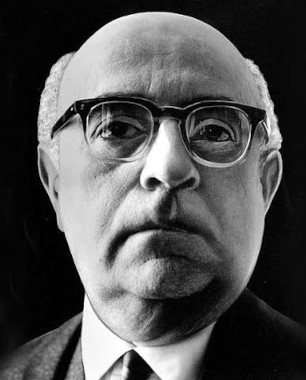
Why Some Esoteric Thinkers Leaned Towards Authoritarianism
It is true that certain esoteric movements and figures aligned themselves with authoritarian ideologies. Some occult traditions emphasized hierarchical structures, secret initiations, and the idea that wisdom should be reserved for an enlightened few—concepts that resonated with the elitist and anti-modern rhetoric of many right-wing movements.
During the interwar period, notable esoteric figures like Julius Evola advocated for a return to traditional, hierarchical societies, rejecting modern democracy in favor of a structured, spiritual aristocracy. Evola’s works influenced European fascist movements, further reinforcing the association between occultism and reactionary politics.
However, these cases represent specific historical contexts rather than a fundamental characteristic of occultism itself. The relationship between esoteric thought and political ideology is shaped by the social and cultural conditions of each era.
Debunking the Myth: Occultism and Progressive Movements
While some esoteric thinkers embraced authoritarianism, others championed progressive causes. Many occult organizations in the late 19th and early 20th centuries provided spaces for radical social experimentation. The Theosophical Society, for instance, advocated for women’s rights, religious pluralism, and anti-colonialism. Its leaders, such as Annie Besant, actively supported progressive political movements and sought to integrate spiritual wisdom with modern social ideals.
Similarly, the Hermetic Order of the Golden Dawn, despite its secretive nature, provided an egalitarian structure where both men and women could attain leadership positions. This contrasted sharply with the rigid gender roles and social hierarchies of mainstream Victorian society.
The political affiliations of esoteric thinkers have varied widely, reflecting the diversity within occult traditions. Rather than being inherently reactionary, occultism has often served as a platform for questioning societal norms, making it a tool that could be wielded in service of both conservative and progressive agendas.
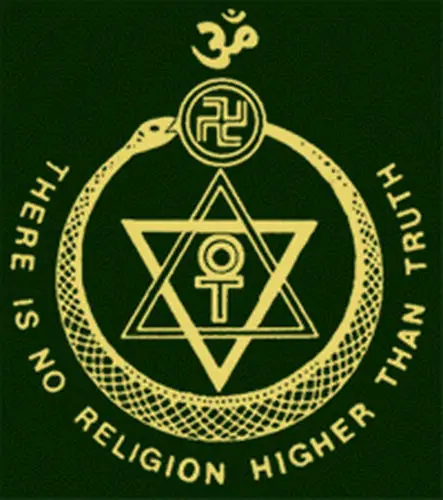
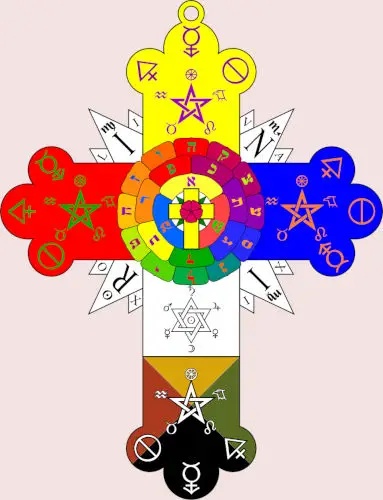
Occultism as a Space for Social Experimentation
Occult organizations have long been more than just secretive spiritual groups. Many of them functioned as cultural laboratories where alternative ideas about society, gender, and spirituality could be explored away from mainstream scrutiny. These esoteric circles provided intellectual and social spaces where new ways of thinking were tested—sometimes decades ahead of their time.
Why Secret Societies Became Cultural Laboratories
The closed nature of occult groups gave them the freedom to experiment with ideas that would have been controversial or even dangerous in the broader society. Many of these organizations, such as the Theosophical Society and the Hermetic Order of the Golden Dawn, attracted intellectuals, artists, and political thinkers who saw them as safe spaces for innovation.
In an era when universities, churches, and political institutions were rigidly structured and often resistant to change, occult societies allowed their members to explore radical ideas without fear of immediate backlash. Whether it was through gender equality, new spiritual frameworks, or alternative political philosophies, these groups became breeding grounds for cultural transformation.
The Unexpected Role of Occultism in Shaping Modernity
Far from being relics of a bygone age, esoteric organizations were deeply intertwined with the cultural and intellectual currents that shaped modern society. Many of their ideas—once considered fringe—later found their way into mainstream discourse.
For example, early occult groups played a role in redefining spirituality in an increasingly secular world. Theosophy, with its blending of Eastern and Western religious traditions, anticipated the global spiritual movements of the 20th and 21st centuries.
Meanwhile, the psychological explorations of groups like the Golden Dawn paralleled the rise of psychoanalysis, offering alternative methods for self-discovery long before figures like Carl Jung brought similar ideas into scientific circles.
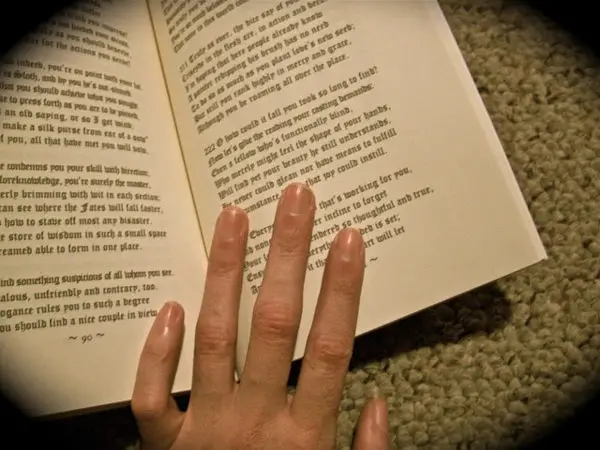
How Esoteric Groups Challenged Traditional Norms
Occult societies often stood in direct opposition to societal norms, particularly when it came to gender roles, sexuality, and religious authority. While mainstream institutions upheld conservative values, esoteric groups were experimenting with alternative lifestyles and beliefs.
One of the most striking examples is the role of women in occult movements. At a time when most Western societies limited women’s access to education and leadership positions, esoteric groups frequently placed them in positions of power. Figures like Helena Blavatsky, Annie Besant, and Florence Farr not only led their respective organizations but also contributed to broader feminist movements.
Beyond gender roles, occult groups also questioned traditional religious dogma. Rather than accepting rigid doctrines, they promoted alternative spiritualities that blended mysticism, philosophy, and science. This willingness to challenge orthodoxy helped pave the way for the modern spiritual movements that emphasize personal experience over institutional authority.
Occultism’s influence on modernity is often overlooked, but its legacy is undeniable. Through their willingness to experiment, esoteric groups helped shape cultural shifts that are still felt today.
Related reading: The Evolution of Modern Western Magic: From Ancient Mysticism to Today’s Spiritual Path – Opens in new tab
The Role of Gender in Occult Movements
Occultism has long been a space where traditional gender roles were challenged. Unlike mainstream religious and political institutions that historically marginalized women, esoteric movements often placed them at the center of leadership, scholarship, and spiritual practice.
Women in occult circles were not just passive participants—they were founders, teachers, and visionaries. This radical departure from societal norms made occult organizations unique cultural spaces where gender roles could be redefined.
Women at the Forefront: How Occultism Empowered Female Leaders
During the 19th and early 20th centuries, the rise of occult societies coincided with the growing feminist movement. Many esoteric organizations provided women with opportunities for leadership and intellectual engagement that were unavailable elsewhere.
In groups like the Theosophical Society and the Hermetic Order of the Golden Dawn, women took on active roles as teachers, initiators, and spiritual guides.
Figures such as Helena Petrovna Blavatsky, co-founder of the Theosophical Society, shattered conventional expectations. She was not only a leading intellectual of her time but also an influential spiritual thinker whose writings shaped global esoteric traditions.
Her successor, Annie Besant, further pushed the boundaries, using her platform to advocate for women’s rights, education, and anti-colonialism. These women were not anomalies; they represented a broader trend within occultism that saw female leadership as both natural and necessary.
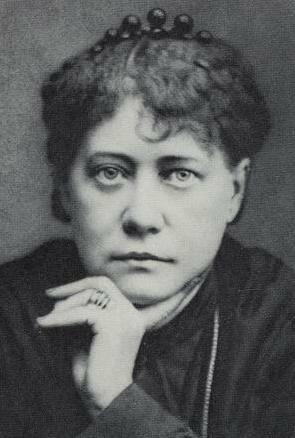
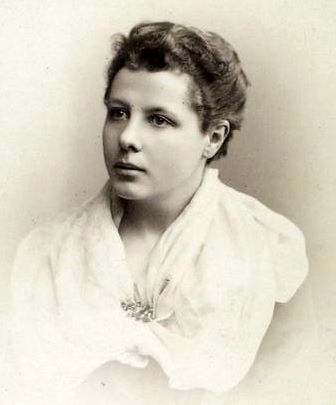
Theosophy and the Rise of Influential Women in Esoteric Circles
The Theosophical Society was one of the most significant esoteric organizations to actively promote gender equality. It embraced the idea that wisdom and spiritual authority were not tied to gender, allowing women to take on leadership roles without the restrictions found in traditional religious institutions.
Blavatsky’s leadership paved the way for other powerful women within the movement. Annie Besant became a vocal advocate for both esotericism and social reform, merging spirituality with activism. Other female Theosophists, such as Katherine Tingley and Alice Bailey, continued to shape modern esoteric thought, influencing movements that extended well beyond occult circles.
Beyond leadership, Theosophy also influenced broader discussions about the divine feminine. The movement integrated ideas of feminine spiritual power, presenting new models of spirituality that valued both masculine and feminine principles equally. This concept later influenced New Age spirituality and feminist theology.
Breaking Stereotypes: The Role of Men and Women in Secret Societies
Occult groups not only elevated women but also redefined gender roles in ways that were progressive for their time. The Hermetic Order of the Golden Dawn, for example, operated on principles of equality, allowing both men and women to participate in rituals, hold high-ranking positions, and access esoteric knowledge. This was a radical departure from mainstream fraternal organizations like Freemasonry, which largely excluded women.
Occultism also provided an alternative space for men who sought to move beyond rigid societal expectations. Many male occultists, including W.B. Yeats and Edward Maitland, actively supported the inclusion of women in esoteric traditions, recognizing their equal spiritual and intellectual capabilities.
In some esoteric circles, gender itself was viewed as fluid, with mystical traditions exploring the idea of balancing masculine and feminine energies within an individual. This esoteric understanding of gender anticipated later conversations on gender identity and equality, positioning occult movements as early spaces of gender exploration.
By breaking traditional gender barriers, occultism created a unique and transformative space that empowered women and redefined masculinity. These movements challenged the status quo, demonstrating that spiritual and intellectual authority were not limited by gender.
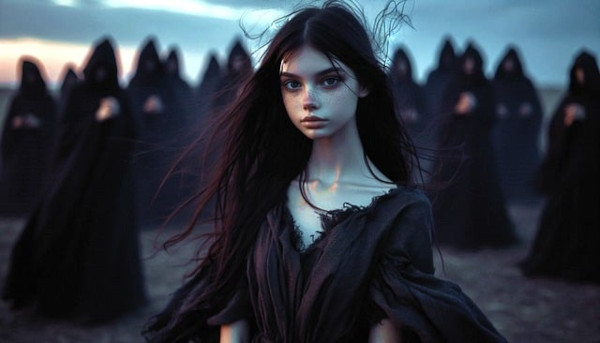
Occultism and the Human Body: Mysticism Meets Science
Esoteric traditions have long explored the mysteries of the human mind and body, often in ways that anticipated modern psychological and scientific discoveries. While mainstream science dismissed many occult ideas as superstition, a closer look reveals that early occultists were actively investigating consciousness, altered states, and the hidden powers of the mind.
These explorations would later influence fields such as psychology, psychotherapy, and even neuroscience.
The Intersection of Esotericism and Early Psychology
In the late 19th and early 20th centuries, the boundaries between occultism and emerging psychological theories were surprisingly fluid. Occultists sought to understand human consciousness, dreams, and altered states of awareness, using techniques that mirrored later psychological practices.
Theosophists and spiritualists, for example, explored meditation, visualization, and hypnotic states—methods that would later become central to psychological therapy and research.
The study of the subconscious mind, a concept widely associated with Freud and Jung, had deep roots in esoteric thought. Occultists believed in an inner, hidden self that could be accessed through rituals, trance states, and meditative practices.
This belief in multiple layers of consciousness closely mirrored what psychologists would later formalize as the conscious, subconscious, and unconscious mind.
How Occultists Explored Consciousness Before Freud
Long before Sigmund Freud published The Interpretation of Dreams (1900) (aff.link), esoteric thinkers were deeply engaged in studying altered states of consciousness. The practices of astral projection, automatic writing, and deep meditation were all methods used to access hidden parts of the psyche.
Many occultists believed that dreams were portals to deeper wisdom, a notion that closely parallels Freud’s idea of dreams as reflections of the unconscious mind.
One of the most influential figures in this area was Franz Anton Mesmer, whose theories of “animal magnetism” suggested that invisible forces influenced human health and consciousness. Though his ideas were later dismissed by mainstream medicine, his methods laid the groundwork for hypnosis and psychoanalysis.
Occult groups, including the Hermetic Order of the Golden Dawn, adapted these concepts, using techniques that resembled modern psychotherapy to explore the mind’s hidden potential.
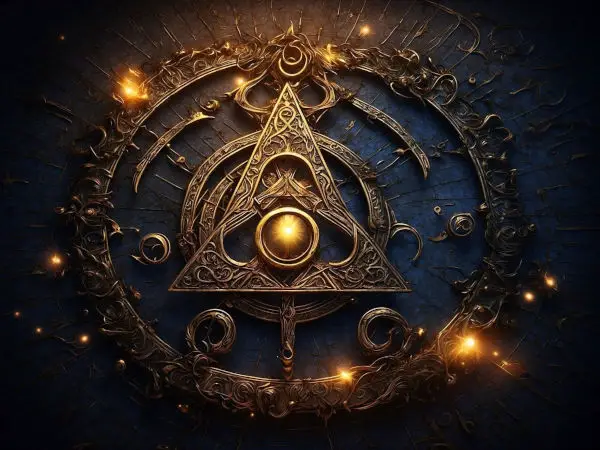
From Spiritualism to Psychoanalysis: A Hidden Connection
The rise of spiritualism in the 19th century also played a crucial role in shaping modern psychology. Séances, mediumship, and spirit communication were, at their core, explorations of altered states of consciousness. While many scientists dismissed these practices, others took a more open-minded approach.
Early psychological researchers, including members of the Society for Psychical Research, studied spiritualist phenomena, searching for scientific explanations behind trance states and extrasensory perception.
Carl Jung, one of the most famous psychologists of the 20th century, was heavily influenced by esoteric traditions. His theories on archetypes, the collective unconscious, and individuation echoed many ideas found in alchemy, Gnosticism, and other mystical traditions. Jung even conducted séances in his youth and later incorporated esoteric symbolism into his psychological framework.
The deep historical ties between occultism and psychology reveal that esoteric traditions were not merely focused on the supernatural but were actively engaged in understanding the human mind.
Many concepts that are now considered foundational in psychology—such as the exploration of the unconscious, the power of symbols, and the therapeutic potential of altered states—owe a significant debt to occult traditions.
Related reading: Ancient Magic: From Divine Rituals to Dark Superstitions – Ancient Rome and Early Christianity – Opens in new tab
Esoteric Societies and Their Influence on Religion
Occultism has long existed at the edges of mainstream religion, offering alternative spiritual frameworks that challenge traditional beliefs. Esoteric societies provided spaces where individuals could explore mystical and philosophical traditions outside the constraints of institutionalized faith.
As religious orthodoxy faced increasing skepticism in the modern era, these movements thrived, reshaping spirituality in ways that continue to influence contemporary religious thought.
How Occultists Redefined Spirituality in the Modern World
The rise of occult movements in the 19th and early 20th centuries coincided with a period of religious transformation. Traditional Christian structures were being questioned, and scientific advancements were challenging literal interpretations of sacred texts. In response, esoteric societies sought to reinterpret spirituality, blending mystical traditions with new understandings of consciousness, cosmology, and human potential.
Unlike mainstream religions, which often emphasized faith and obedience, occult traditions encouraged personal experience, secret knowledge, and inner enlightenment. Groups like the Theosophical Society and the Hermetic Order of the Golden Dawn attracted individuals who sought deeper spiritual truths beyond the constraints of organized religion.
Their teachings often combined elements of Christianity, Eastern philosophies, and Western mysticism, creating new spiritual pathways that resonated with those disillusioned by traditional dogma.

Theosophy’s Challenge to Traditional Christian Beliefs
The Theosophical Society, founded by Helena Petrovna Blavatsky in 1875, played a pivotal role in redefining religious thought. Unlike Christian denominations that positioned their teachings as the ultimate truth, Theosophy promoted a universalist approach to spirituality. It suggested that all religions contained fragments of a greater, ancient wisdom and that humanity’s spiritual evolution depended on integrating these diverse traditions.
Blavatsky’s writings directly challenged many core Christian doctrines, particularly the exclusivity of Christ as the sole path to salvation. Instead of a singular divine revelation, Theosophy proposed a cyclical view of history, where knowledge and spiritual enlightenment unfolded over time through various traditions.
This perspective undermined the authority of the Church, making Theosophy both controversial and appealing to those seeking a more inclusive approach to spirituality.
Annie Besant, one of Theosophy’s most influential leaders, continued this challenge, arguing for reincarnation, karma, and the presence of divine wisdom beyond the confines of Christianity. By promoting these ideas, Theosophy provided an intellectual and spiritual alternative that attracted many seeking a bridge between faith and reason.
Why Occult Groups Thrived During the Crisis of Religious Faith
By the late 19th century, Western society was undergoing a significant religious crisis. Scientific discoveries, such as Darwin’s theory of evolution, cast doubt on literal biblical interpretations, while industrialization and urbanization changed how people engaged with faith. As traditional religious structures struggled to adapt, occult societies offered alternative spiritual frameworks that addressed these uncertainties.
Many people turned to esotericism as a way to reconcile science with spirituality. Occult groups often embraced concepts like energy, consciousness, and hidden dimensions of reality—ideas that paralleled emerging scientific theories. This adaptability allowed them to attract intellectuals, artists, and reformers who sought meaning beyond the rigid structures of institutionalized faith.
Additionally, the secrecy and exclusivity of occult groups provided a sense of mystery and depth that conventional religious institutions often lacked. While mainstream churches focused on public worship and collective belief, esoteric societies emphasized personal transformation and direct spiritual experience.
This made them particularly appealing to those who felt disconnected from the dogmatic teachings of organized religion.
Occult movements did not just survive during the crisis of faith—they flourished. Their influence extended beyond secret societies, shaping modern spiritual movements, New Age philosophies, and contemporary interpretations of mysticism. By challenging religious orthodoxy and promoting alternative spiritual models, esoteric groups played a crucial role in redefining the religious landscape of the modern world.

Occultism’s Role in Colonialism and Global Influence
The rise of occultism in the modern era was deeply intertwined with colonial expansion and cross-cultural exchanges. As Western powers extended their reach across Asia, Africa, and the Middle East, they encountered rich spiritual traditions that had existed for centuries.
Many Western esotericists became fascinated with these traditions, incorporating elements of Eastern mysticism into their own systems of thought. However, this engagement was often shaped by colonial attitudes, leading to both admiration and distortion of non-Western spiritual practices.
The Fascination with Eastern Mysticism in Western Esoteric Circles
During the late 19th and early 20th centuries, many Western occultists viewed Eastern spiritual traditions as ancient sources of hidden wisdom. Movements like Theosophy, which sought to uncover the universal truths behind all religions, placed particular emphasis on Hindu and Buddhist teachings.
Theosophical leaders, including Helena Blavatsky and Annie Besant, promoted the idea that Eastern philosophies contained deeper spiritual insights than those found in Western Christianity.
This fascination with the East was not limited to Theosophy. Other occult groups, such as the Hermetic Order of the Golden Dawn, borrowed heavily from concepts like karma, reincarnation, and meditation.
These ideas, once foreign to Western religious thought, became central themes in modern esotericism. However, much of this engagement was filtered through a Western lens, often romanticizing and simplifying complex traditions to fit existing mystical frameworks.
Related reading: The Magicians of Mesopotamia: Who They Were and What They Did – Opens in new tab
How Colonialism Shaped the West’s Understanding of Occult Traditions
The colonial era was a time of both cultural exchange and appropriation. As European powers ruled over vast territories in India, Egypt, and beyond, Western scholars and esotericists sought to “rediscover” ancient wisdom from these lands.
However, their interpretations were often shaped by Eurocentric biases. Rather than engaging with these traditions on their own terms, many occultists framed them as primitive, mystical, or in need of Western reinterpretation.
For example, British colonial rule in India allowed Theosophists like Annie Besant to immerse themselves in Hindu philosophy. While she was a passionate advocate for Indian self-rule, her esoteric teachings sometimes reframed Hindu concepts in ways that fit Western spiritual narratives. Similarly, the fascination with Egyptian mysticism, particularly in Freemasonry and Rosicrucianism, often relied on an exoticized vision of ancient Egypt rather than historical accuracy.
Despite these issues, the colonial encounter did facilitate genuine cross-cultural exchanges. Some Indian spiritual teachers, such as Swami Vivekananda, used the growing Western interest in Eastern mysticism to introduce Vedantic and yogic traditions to global audiences.
This exchange laid the foundation for the spread of Eastern spiritual practices in the West, influencing everything from meditation to modern occult practices.
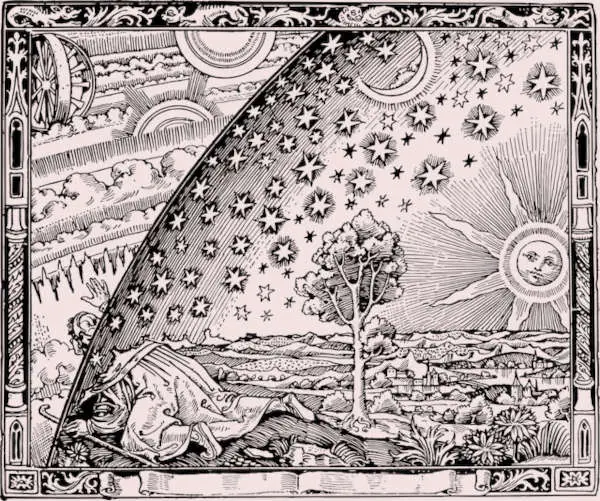
The Impact of Eastern Philosophy on Modern Western Esotericism
The integration of Eastern thought into Western esotericism had a profound and lasting impact. Concepts like reincarnation, chakras, and enlightenment, once seen as foreign, became widely accepted within Western mystical and spiritual movements. Theosophy played a particularly crucial role in this transformation, popularizing ideas that would later influence the New Age movement and alternative spiritual practices.
Beyond Theosophy, figures like Carl Jung incorporated Eastern philosophy into their psychological theories, blending Western analytical psychology with concepts from Taoism, Buddhism, and Hinduism. This fusion of Eastern and Western thought helped shape the development of transpersonal psychology, a field that explores spirituality, consciousness, and human potential.
Occultism’s relationship with colonialism was complex, marked by both cultural appropriation and genuine intellectual curiosity. While many esotericists misunderstood or misrepresented Eastern traditions, their engagement with these philosophies helped introduce new spiritual frameworks to the West.
Today, the influence of Eastern mysticism is evident in Western spirituality, from meditation and yoga to holistic healing and consciousness studies.
Related reading: The Contradictory Worlds of Scientism and Post-Truth in Contemporary Shamanism – Opens in new tab
Breaking Stereotypes: Occultism and Enlightenment Values
Occultism is often dismissed as irrational, anti-modern, and opposed to the principles of science and reason. This perception, reinforced by critics like Theodor Adorno and George Orwell, suggests that esotericism is inherently reactionary and hostile to progress.
However, historical evidence tells a different story. Many esoteric traditions have actively engaged with scientific discoveries, philosophical inquiry, and social progress. Far from being the enemy of modernity, occultism has often sought to integrate mystical insights with rational thought and Enlightenment ideals.
Why Esotericism Is Not Inherently Anti-Modern or Anti-Science
One of the biggest misconceptions about occultism is that it represents a rejection of modern science and rationality. While some esoteric traditions emphasize mystery and intuition, many have actively embraced scientific inquiry.
In fact, occult thinkers have frequently attempted to harmonize their beliefs with cutting-edge discoveries in fields like psychology, physics, and medicine.
For example, the rise of spiritualism in the 19th century coincided with advancements in electromagnetism and telegraphy. Many spiritualists believed that unseen forces, similar to those discovered in physics, could explain psychic phenomena.
Likewise, figures like Franz Anton Mesmer, who pioneered the concept of animal magnetism, laid the groundwork for later studies in hypnosis and psychotherapy.
In the early 20th century, Theosophists and other occultists explored the idea that consciousness might be an energy field that could be scientifically studied. Their discussions anticipated later research in quantum mechanics and consciousness studies.
Rather than opposing science, many esoteric thinkers sought to extend its boundaries, exploring areas that mainstream institutions had yet to fully investigate.

The Surprising Connections Between Occultism and Rational Thought
Despite its mystical nature, occultism has always had a strong intellectual component. Many esoteric traditions emphasize rigorous study, systematic practice, and deep philosophical reflection. This aligns with the rationalist ideals of the Enlightenment, which championed knowledge, inquiry, and the pursuit of truth.
During the late 19th and early 20th centuries, occult groups like the Hermetic Order of the Golden Dawn structured their teachings around complex philosophical and symbolic systems. Their studies incorporated elements of classical philosophy, mathematics, and sacred geometry—fields that were deeply connected to both scientific and esoteric traditions.
Even figures like Aleister Crowley, known for his controversial reputation, emphasized the importance of empirical validation. His approach to magic was methodical, treating rituals as experiments that required careful observation and refinement. This echoes the scientific method, where hypotheses are tested through repeated practice and analysis.
Conclusion: Rethinking Occultism’s Place in History
Occultism has often been misunderstood, reduced to either mystical superstition or dismissed as anti-modern irrationality. However, history tells a different story. Esoteric traditions have not only shaped spiritual beliefs but have also influenced literature, politics, gender roles, and even scientific thought.
From the Theosophical Society’s role in promoting Eastern philosophies in the West to the Golden Dawn’s radical gender inclusivity, occult movements have often been ahead of their time, challenging societal norms and expanding intellectual horizons.
Related reading: Burning Words, Healing Bodies: How Medieval England Used Written Words to Heal – Opens in new tab
Why Studying Esotericism Matters in Today’s World
In an era where spirituality, psychology, and science continue to intersect, understanding occultism offers valuable insights into how humans seek meaning beyond conventional frameworks.
Many of the themes explored by esoteric movements—such as consciousness, mysticism, and the balance between reason and intuition—remain relevant in modern discussions about mindfulness, metaphysics, and self-development.
Moreover, esotericism provides a historical lens through which we can analyze cultural exchanges, the evolution of belief systems, and the ways in which marginalized ideas eventually influence the mainstream. Whether in literature, philosophy, or social activism, occult traditions have played a role in shaping the modern intellectual landscape.
What Modern Culture Can Learn from the Evolution of Occult Thought
Occultism’s ability to adapt and evolve alongside societal changes demonstrates the power of alternative thought in driving progress. It reminds us that history is not just shaped by dominant institutions but also by those who challenge conventions and explore new ideas.
The emphasis on personal transformation, spiritual exploration, and the pursuit of hidden knowledge remains a key part of contemporary culture, influencing everything from self-help movements to holistic healing practices.
Rather than viewing occultism as a relic of the past, we should recognize it as an integral part of intellectual and cultural history. By studying its evolution, we gain a deeper understanding of how human thought has developed—and how it continues to shape the way we navigate the mysteries of existence.
Check out our recommendations at “Occult Bookshelf” and many free resources at our “Free Library“
Source: “The Modernity of Occultism: Reflections on Some Crucial Aspects”, by Marco Pasi. Published in: Hermes in the Academy: Ten Years’ Study of Western Esotericism at the University of Amsterdam
Stay in Touch
 Join our newsletter by using the forms on this website or click here!
Join our newsletter by using the forms on this website or click here! Follow us on Google News
Follow us on Google News Follow us on Facebook
Follow us on Facebook
Featured image by Sam from Pixabay

